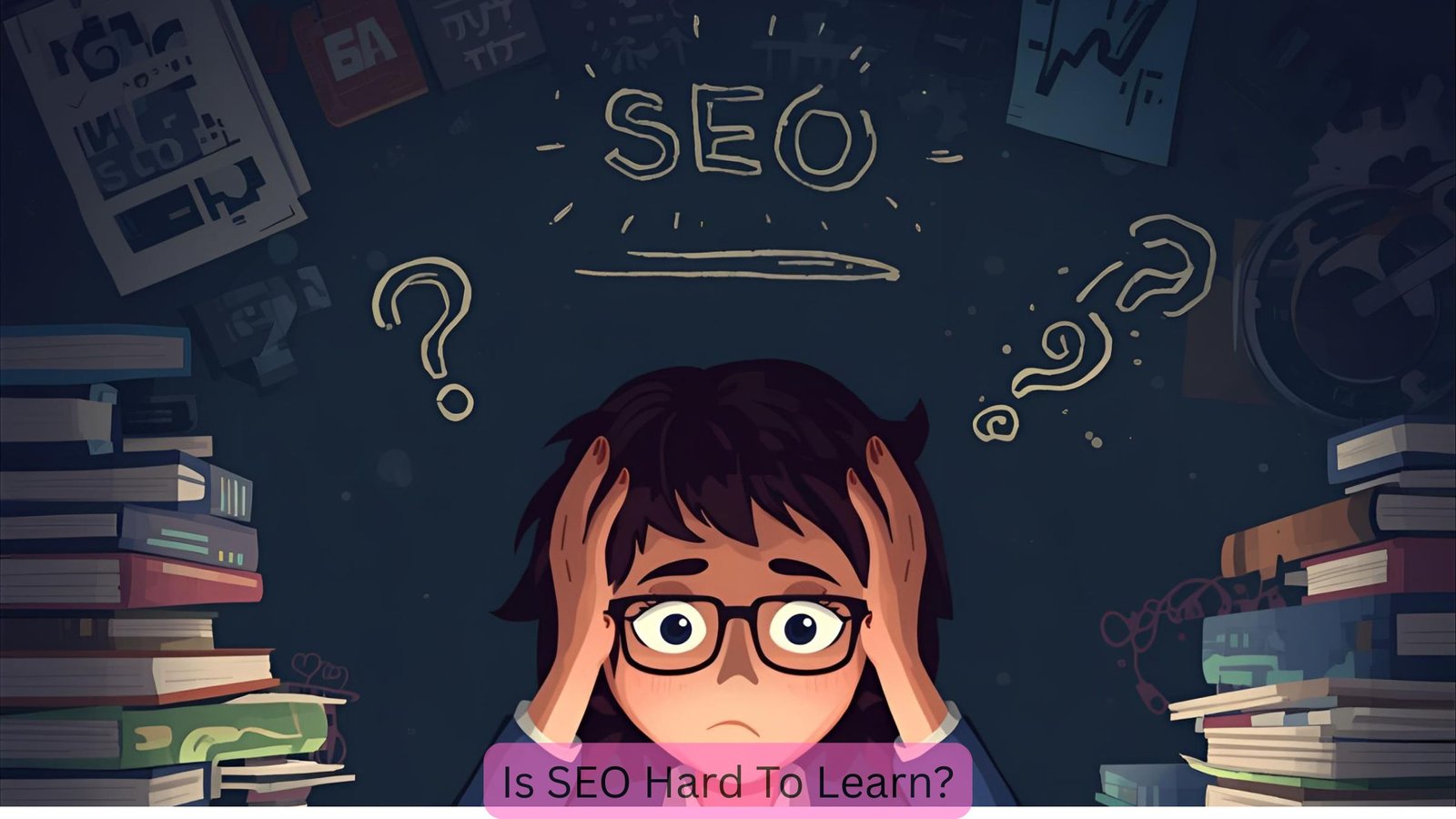Is SEO Hard To Learn?
 When you start learning SEO, it can seem daunting. There’s a lot to grasp, from keyword research to on-page techniques. You might wonder if you'll ever fully understand the intricacies of search algorithms and analytics. But don't let that overwhelm you just yet. With the right approach and consistent effort, you can navigate these complexities. So, what steps should you take to make the learning process smoother?
When you start learning SEO, it can seem daunting. There’s a lot to grasp, from keyword research to on-page techniques. You might wonder if you'll ever fully understand the intricacies of search algorithms and analytics. But don't let that overwhelm you just yet. With the right approach and consistent effort, you can navigate these complexities. So, what steps should you take to make the learning process smoother?
Understanding the Basics of SEO
SEO, or Search Engine Optimization, is the practice of enhancing your website’s visibility on search engines.
To grasp the basics, you need to understand how search engines work. They crawl, index, and rank your content based on relevance and quality. This means you should focus on creating valuable, informative content that answers users' queries. For more advanced strategies, you can learn from a seasoned SEO expert in India.
You’ll also want to pay attention to on-page elements like title tags, meta descriptions, and headers, as they signal to search engines what your page is about.
Don’t forget about user experience; a well-structured, fast-loading site keeps visitors engaged.
Lastly, familiarize yourself with off-page SEO, which involves building backlinks to boost your site's authority.
The Importance of Keyword Research
Keyword research is the cornerstone of any successful online strategy. It helps you identify what terms your audience is searching for, allowing you to create content that meets their needs.
By focusing on the right keywords, you can increase your chances of ranking higher in search engine results, driving more organic traffic to your website. This process also reveals trends, insights, and opportunities within your niche, helping you understand your competition better.
When you know which keywords to target, you can tailor your content effectively, ensuring it resonates with your audience. Ultimately, effective keyword research sets the foundation for all your SEO efforts, making it an essential skill for anyone looking to succeed online.
On-Page Optimization Techniques
On-page optimization techniques are vital for improving your website's visibility and user experience.
First, focus on crafting compelling title tags and meta descriptions that accurately reflect your content. Use relevant keywords naturally throughout your text, especially in headings and the first paragraph.
Make sure your URLs are clean and descriptive to enhance both SEO and user navigation. Don’t forget to optimize your images with alt text to improve accessibility and provide context.
Additionally, improving your website’s loading speed and ensuring it’s mobile-friendly are crucial for retaining visitors.
Finally, include internal linking to guide users to related content, boosting engagement and helping search engines understand your site structure.
Off-Page SEO Strategies
While optimizing your website's on-page elements is important, off-page SEO strategies can significantly enhance your site's authority and visibility.
One effective method is building high-quality backlinks from reputable sites in your niche. This not only drives traffic but also signals to search engines that your content is trustworthy.
Engaging in social media marketing helps you connect with your audience and share your content, increasing its reach. Additionally, guest blogging allows you to showcase your expertise while earning backlinks.
Influencer partnerships can also amplify your message, driving more organic traffic. Lastly, participating in online communities and forums related to your industry fosters relationships and can lead to valuable link opportunities.
The Role of Analytics in SEO
Understanding the role of analytics in SEO is crucial, as it provides you with valuable insights into your website's performance. By tracking key metrics like organic traffic, bounce rate, and conversion rates, you can see what’s working and what’s not.
This data helps you make informed decisions about your content and keyword strategies. For instance, if certain pages have high traffic but low engagement, you might need to improve their content or user experience.
Additionally, analyzing competitor performance can highlight areas where you can excel. Regularly reviewing your analytics ensures you adapt to changing trends, keeping your SEO efforts aligned with user behavior. Many newcomers also wonder why mastering SEO feels so challenging.
Tips for Continuous Learning and Improvement
To stay ahead in the ever-evolving world of SEO, you need to commit to continuous learning and improvement.
Start by following reputable SEO blogs and podcasts to keep up with the latest trends and algorithm updates. Join online forums and communities where you can exchange ideas and ask questions.
Experiment with your own website—test different strategies to see what works best for you. Additionally, take online courses or attend workshops to deepen your understanding.
Regularly analyze your performance metrics to identify areas for improvement. Lastly, don’t hesitate to seek feedback from peers or mentors.
Conclusion
In conclusion, while SEO might seem daunting at first, it's definitely learnable with the right approach. By grasping the basics, focusing on keyword research, and practicing on-page and off-page techniques, you’ll build a solid foundation. Don’t forget to leverage analytics to track your progress. Stay curious and committed to continuous learning, and you'll find that mastering SEO becomes an achievable goal, opening up new opportunities for your online presence. Keep at it, and don’t lose heart!
